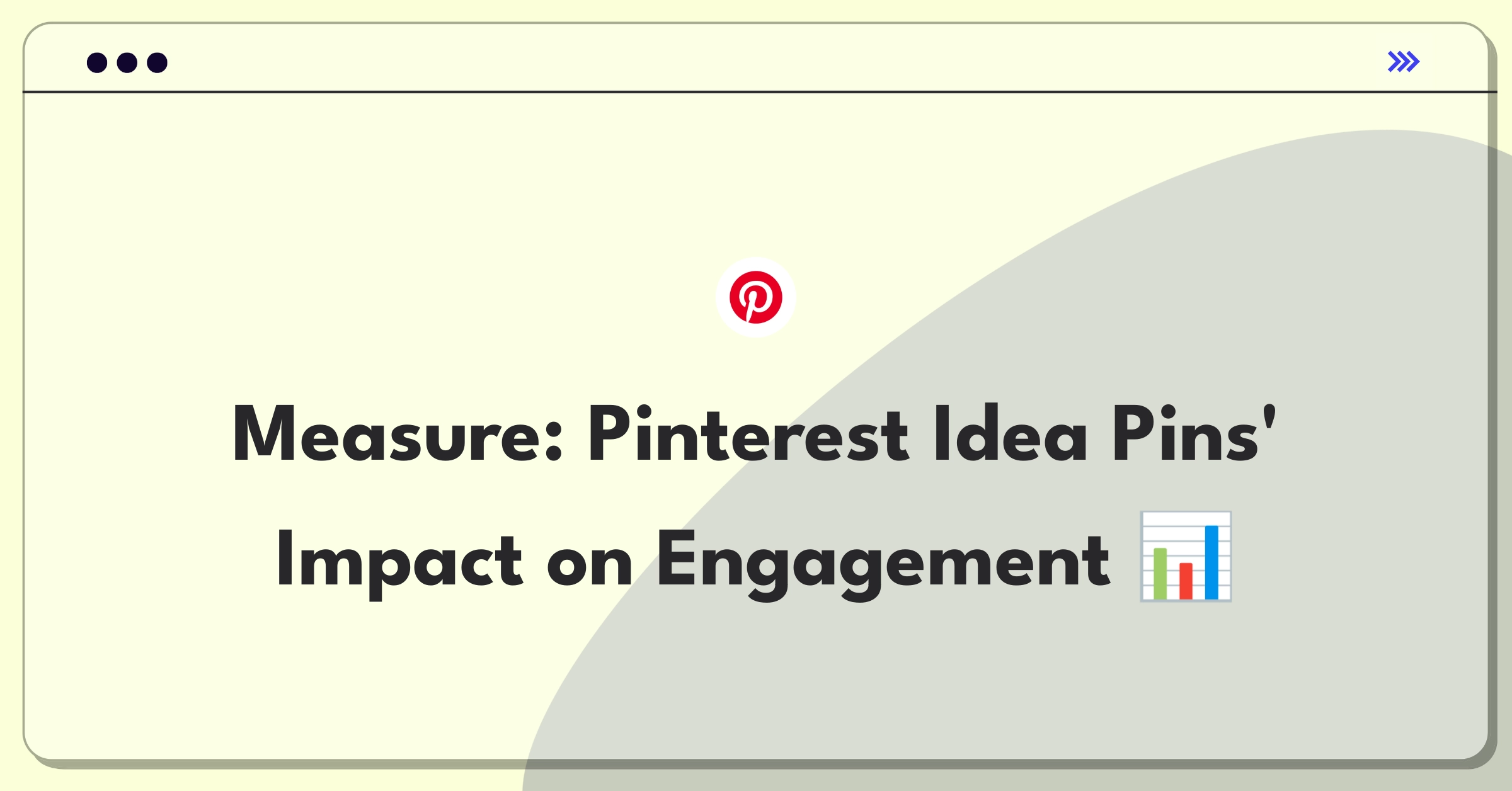Introduction
Measuring the success of Pinterest's "idea pins" feature requires a comprehensive approach that considers multiple stakeholders and metrics. To effectively evaluate this product feature, I'll follow a structured framework covering core metrics, supporting indicators, and risk factors while considering all key stakeholders.
Framework Overview
I'll follow a simple success metrics framework covering product context, success metrics hierarchy.
Step 1
Product Context (5 minutes)
Pinterest's "idea pins" are a video-first feature that allows creators to share multi-page, interactive content. These pins combine video, images, and text to provide step-by-step tutorials, recipes, or other inspirational content.
Key stakeholders include:
- Creators: Seeking to engage audiences and grow their following
- Users: Looking for inspiration and actionable ideas
- Advertisers: Interested in reaching engaged audiences
- Pinterest: Aiming to increase user engagement and monetization
User flow:
- Creation: Creators produce multi-page content with videos, images, and text
- Discovery: Users find idea pins through search, home feed, or creator profiles
- Engagement: Users interact with the content, save pins, and potentially create their own
This feature aligns with Pinterest's strategy to become a more interactive, creator-friendly platform, competing with platforms like TikTok and Instagram Reels. It's currently in the growth stage of its lifecycle, with ongoing refinements and increased adoption.
Subscribe to access the full answer
Monthly Plan
The perfect plan for PMs who are in the final leg of their interview preparation
$99 /month
- Access to 8,000+ PM Questions
- 10 AI resume reviews credits
- Access to company guides
- Basic email support
- Access to community Q&A
Yearly Plan
The ultimate plan for aspiring PMs, SPMs and those preparing for big-tech
$99 $33 /month
- Everything in monthly plan
- Priority queue for AI resume review
- Monthly/Weekly newsletters
- Access to premium features
- Priority response to requested question


.png)